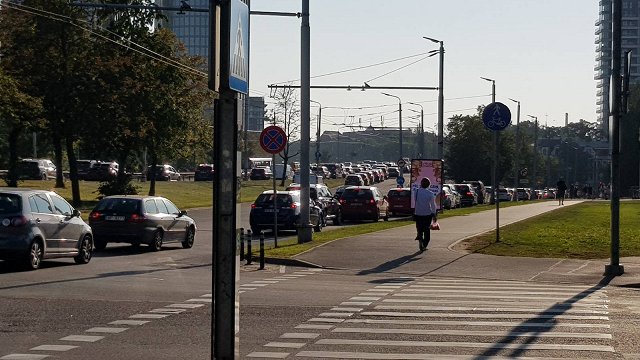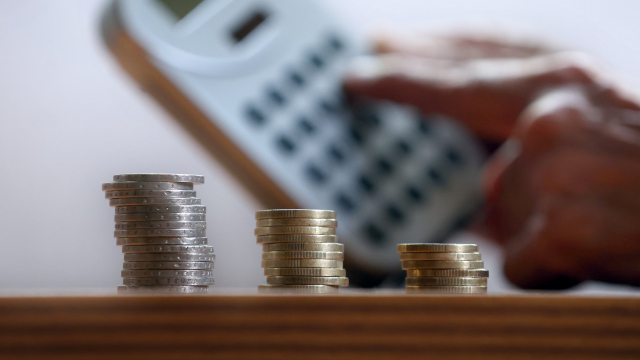On the last Friday of August, the Cabinet of Ministers decided in a closed session to reduce both the share capital of airBaltic and the state's stake in the company. The share capital was reduced by €571.3 million to delete losses accumulated over the years.
The money invested by the State has long ceased to be real money sitting somewhere in the company's bank account or safe deposit box. These funds have been used for economic activities for years.
The first big injection of public money into airBaltic came in 2011, when the government took control of the near-bankrupt business of the airline's former president, Bertolt Flick. The state provided airBaltic with a loan of more than €80 million.
To implement the business plan of the new airBaltic boss Martin Gauss, which included a fleet renewal, more state money was injected into the company, together with funds from a newly found private investor, Ralf-Dieter Montag-Girmes. In 2015, the earlier loans were capitalized and in 2016, another 80 million was injected.
airBaltic's financial performance started to look more promising but then came the Covid crisis. So in the spring of 2020, the Cabinet decided to inject another €250 million into airBaltic's capital. "This means that we are guaranteeing that, despite the pandemic and these terrible difficulties that the whole airline industry is going through, Latvia has and will have a national airline," said Prime Minister Krišjānis Kariņš (New Unity) at the time.
In 2021, airBaltic explained that this money helped, among other things, to cover aircraft leasing and maintenance. More than €60 million had to be refunded to passengers for canceled flights.
The €250 million was not the end of the story, and the government later injected another €90 million. "This increase in share capital is not a gift, it is not a grant, in fact, we consider it a loan," said then Transport Minister Tālis Linkaits (New Conservative Party).
Gauss also repeated in numerous interviews that taxpayers would get their money back after the sale of airBaltic shares on the stock exchange.
"All the money invested in airBaltic over 27 years will be returned," Gauss said on LTV's morning program a year ago.
The share capital of airBaltic increased to €596.5 million in 10 years. But the accumulated losses of the previous years - 685.9 million - were still in airBaltic's books. In recent years these were larger than the value of the shares, so airBaltic's equity was actually negative. At the end of last year it was €47.9 million in the negative, this year - minus €134 million.
Although for years the public was fed promises that taxpayers would be repaid for their investment in the company, at the end of August the government decided, basically, to drop the €571.3 million.
This was not immediately disclosed after the government meeting and it took several days before the fact was revealed.
A few days later, a press conference was called at the Ministry of Transport. Minister Kaspars Briškens (Progressives), who himself worked for many years on the board of airBaltic, noted that losses have already occurred and therefore urged people to think about the future profitability of airBaltic by floating shares on the stock exchange.
"You already see, of course, the current balance sheet of the company. The company suffered a total loss of 455 million during the three years of the pandemic, in circumstances when Latvia had really very strict restrictions on aviation and also total quarantine conditions.
"It is clear that the Covid investment that the state made at that time was, in fact, to save the company from insolvency," Briškens said.
The reduction of the share capital did not come as a surprise to airBaltic's financial experts. Kārlis Krastiņš, a former consultant at financial adviser firm Prudentia, agrees that the old losses had to be written off in this way.
"Of course, if the company expects to make a profit on the accumulated losses in the near future, in a year, a year and a half, then it is rational to hold on to the old shares, but it is unlikely that airBaltic will make 600-700 million in a year. It is not realistic. Therefore, these old shares, which have been issued for more than 20 years, should be canceled. And these big accumulated losses have to be wiped out and then new money can come in with a cleaner, clearer balance sheet," said Krastiņš.
Prudentia annually compiles a list of Latvia's most valuable companies. Last year, airBaltic was valued at around €300 million. The figure is in line with the forecasts that the company's management hopes to raise on the stock exchange and from a well-known strategic investor with whom negotiations are currently underway.
According to the information available to "De Facto", the strategic investor could initially bid for 10% of airBaltic's shares.
"We are talking about a minority stake," confirmed Klāvs Vasks, Chairman of the Supervisory Board of airBaltic, adding that the total investment of the strategic investor will certainly be less than the state's share.
Asked why a global airline would be interested in investing in airBaltic, the Chairman of the Supervisory Board cites the airBaltic fleet as one of the reasons: "If our plan is to grow to 100 aircraft and 12 million passengers by 2030, plus expand Riga as a repair base for these aircraft, then this is quite a strategic asset. We will be the world's largest fleet holder of Airbus 220."

























